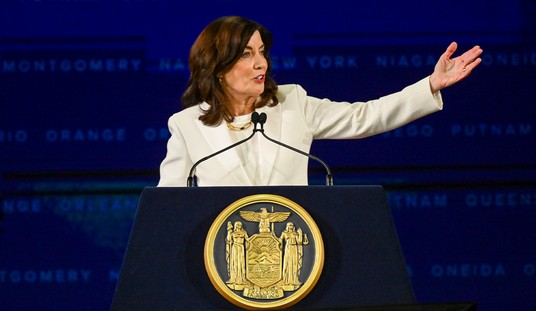At a July press conference, President Obama claimed "the average American family is paying thousands of dollars in hidden costs" because uncompensated health care for the uninsured drives up the price of medical coverage. In an interview with ABC's George Stephanopoulos on Sunday, by contrast, he said uncompensated care costs the average family $900.
According to a 2008 report from the Henry J. Kaiser Family Foundation, both of those estimates are way off. The foundation's analysis indicates that the true annual cost per family is more like $200, with uncompensated care accounting for "less than 1 percent of private health insurance costs."

These numbers are important because the president's main justification for requiring every American to buy health insurance, a central element of his reform plan, is that uninsured people unfairly impose costs on their fellow citizens. That rationale not only has a weak empirical basis, it conceals the real motivation for the individual insurance mandate, while dodging moral and constitutional questions about it.
During the presidential campaign, Obama castigated his Democratic rival, Hillary Clinton, for saying the federal government should force everyone to buy health insurance. Five months into his presidency, however, Obama said he supported "making every American responsible for having health insurance coverage."
In a speech this month, he argued that "the young and the healthy" cannot be permitted to "take the risk and go without coverage" because "such irresponsible behavior costs all the rest of us money," since "we pay for these people's expensive emergency room visits."
The problem with this argument is not just that the cost of such uncompensated care seems to be much lower than the president claims. It's also his assumption that everyone who goes without insurance is a freeloader.
Recommended
What about the young and healthy (or middle-aged and wealthy) person who decides insurance is not worth his money but pays all his medical expenses out of his own pocket? His choice does not impose costs on anyone, but under Obama's plan he would still be punished for it.
The real reason Obama insists upon making the young and healthy buy insurance they don't want is not the relatively minor free-rider problem, but the potentially ruinous adverse selection problem: The most expensive patients are the ones who are most likely to sign up for coverage. To keep the official 10-year price tag of his plan below that magical $1 trillion threshold, he needs to balance sick people who rack up big bills with healthy people who pay for insurance but don't use it. Instead of acknowledging this reality, Obama portrays the healthy uninsured as irresponsible leeches.
Even if Obama could make a plausible moral argument for the unprecedented step of demanding that all Americans buy insurance -- not in exchange for a particular privilege, such as driving on public roads, but simply by virtue of being alive -- he would be hard pressed to cite the constitutional authority for such a mandate. The regulation of interstate commerce is the usual justification for federal intervention in the economy, but the decision to refrain from buying insurance is neither interstate nor commerce.
Obama might be on firmer ground if he portrayed the levy imposed on people who decline to buy insurance as an exercise of the congressional tax power. But he does not want to admit he is forsaking his campaign promise to refrain from raising taxes on households earning less than $250,000 a year. That's why, in his interview with Stephanopoulos, he insisted that the "excise tax" imposed on the uninsured by the Senate health care bill he supports is not really a tax.
How so? After Obama signed a bill raising the federal cigarette tax, his press secretary explained that the tax pledge was still intact because "people make a decision to smoke." Likewise, Obama might argue, people make a decision not to buy health insurance. The lesson is clear: If you don't want to pay higher taxes, don't make any decisions.

























Join the conversation as a VIP Member